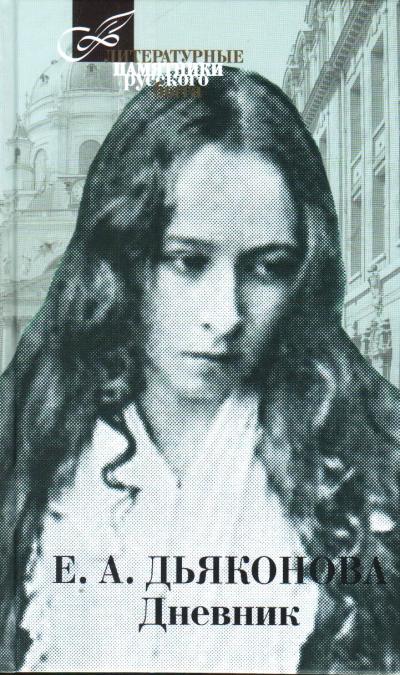Diary
19.99 €
Out of stock
Elizaveta Diakonova was born on August 15, 1874 in Nerekhta, Kostroma province, into a poor merchant family. From the age of 11 she kept a diary, the first entry in which refers to May 1886. The diary was started in Nerekhta, and continued in Yaroslavl, where the family moved after the death of her father. What are these early years filled with? The home life flows, rather unhappy, stretches the life of gymnasium - "study, study, to infinity". Enter the diary and world news: the crash of the royal train in October 1888, the resignation of Bismarck, the death of Alexander III. Sentimental notes of a provincial girl quite quickly turn into a diary in the most serious sense of the word: it is no longer naive lines, but the result of "a mind of cold observations and a heart of sorrowful notices". Lisa reflects on her purpose, on the unwillingness to follow the rules and standards that impose family and society. In May 1891, she graduated from high school and, dreaming of continuing her education, against the will of her mother, entered the highest female Bestuzhevsky courses in St. Petersburg. New impressions, new experience, a turning point in her destiny, the happiest and almost unbelievable: "...I am free? and I can go wherever I want, do - what I want, do - as I want, and I am no longer bound by these chains of slavery ...". Isn't that true? I'm studying. I - on the course..." Lisa's life played with new colors: student festivals and rallies, political and religious-philosophical circles, offices of newspaper and magazine editorial offices, acquaintance with the writer V. Korolenko, publicist M. Korolenko. Korolenko, publicist M. Menshikov, public figure N. Neplyuev ... She reads vigorously - poetry and prose, fiction and treatises, in Russian and in French. Every now and then on her diary pages appear the names and lines of Pushkin, Lermontov, Griboyedov, Turgenev, Zhukovsky, Tyutchev, Nekrasov, Fet, Shakespeare, Montesquieu, Rousseau, Madame de Stael, Goethe, Schiller, Byron, Stendhal, Hugo, Maupassant, Zola, Franz.... The main name for her in literature - Leo Tolstoy, whom she worships, sometimes challenged, but the internal dialog with which leads all his life. At the end of 1900 Elizabeth went to Paris, entering the Faculty of Law at the Sorbonne. At this time she fell hopelessly in love with her psychiatrist, who treated her for headaches and rapid fatigue. However, despite the constant ailments, the girl made great plans for the future: she wanted to become a writer and an activist of the women's movement, which originated in Russia following the example of England and France. But fate ordered otherwise ... In the summer of 1902 Diakonova went on vacation in Russia, going to "nice Nerekhta" to prepare for exams for the second year. On the way she turned to Tyrol, where at that time rested her relatives. Here, in the picturesque surroundings of Lake Aachensee, and tragedy struck. The girl went alone into the mountains in inclement weather and did not return. She unsuccessfully searched for a month, and when they found a breathless body, the circumstances of death caused a huge amount of speculation ... "Lisa, it seems, committed suicide - wrote her sister Nadezhda Diakonova. - Found her by the brook undressed, her dress tied up with a page. She threw herself from one of the ledges, but unsuccessfully, broke both legs, the suffering was probably terrible ... But we can assume another - that she went mad from terror and hunger, undressed and threw herself ... All very strange ..." Elizabeth's brother, Alexander Diakonov, on the contrary, fervently denied the suicide of his sister, painting a picture of an accident. The relatives tried to find answers to numerous questions in the diary of the girl, beginning with the words: "I would not want to die without leaving behind any trace on earth; this desire is insane on my part, but what to do, I write the truth" ... Extremely sincere, Lisa's diary was recognized as a bright literary work: the short life of the girl, described by herself, earned the attention of readers and critics. "The late Elizabeth Diakonova set the same goal as Maria Bashkirtseva, to write a "diary", which would serve as a "photograph of a woman" - noted in the "Petersburg newspaper" - <...> Diakonova faithful to the truth and real to the last stroke. For the first time in many years, the diary is published in full.
See also:
- All books by the publisher
- All books by the author
- All books in the series Literary monuments of Russian life



